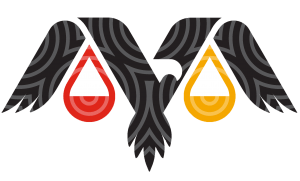2 August 2022
The Mental Health and Wellbeing Bill was supposed to enable a revolution in mental health care, but will still allow abusive practices. Aboriginal and/or Torres Strait Islander people will pay the highest price if the Victorian Parliament passes such a disappointing Bill, without making the necessary amendments first.
VALS wants to see the Bill improved with amendments to ban the use of solitary confinement and remove the expansion of police powers, currently in the Bill. VALS also wants the Victorian Government to make a real commitment to independent detention oversight that includes places where people are detained for mental health reasons.
Solitary confinement
Research by VIMIAC shows that Aboriginal people are secluded and restrained at higher rates than other people.
The Bill does not go far enough to address practices within the mental health system that violate human rights law, including prolonged solitary confinement.VALS believes that practices that amount to torture, cruel, inhuman or degrading treatment must be eliminated immediately. The new Act should protect the right not to be subjected to torture or cruel, inhuman or degrading treatment or punishment, in line with Section 10 of the Victorian Charter of Human Rights and Responsibilities.
It should also explicitly prohibit solitary confinement and prolonged solitary confinement, using the UN definitions of those practices.
Independent detention oversight
The shortcomings in the new Bill highlight the critical need for independent detention oversight, in compliance with Victoria’s obligations under theOptional Protocol on the Convention Against Torture, Cruel, Inhuman and Degrading Treatment and Punishment (OPCAT).
OPCAT requires Australian Governments to establish a National Preventive Mechanism (NPM) to carry out independent visits to “to any place under its jurisdiction and control where persons are or may be deprived of their liberty.”
The Victorian Government had an obligation to establish independent detention oversight by January 2022. It failed to meet that deadline and has made no progress that would suggest it is committed to this much needed reform.
Independent and culturally appropriate oversight of places where people are detained under the new Mental Health and Wellbeing Act must be a priority.
Police must not have a role in healthcare
VALS strongly supports health responses to health issues. The Royal Commission recommended that wherever possible, mental health crisis responses should be led by health professionals – not police.
We strongly oppose the expansion of powers for Protective Services Officers under the Bill, which is fundamentally at odds with the shift towards a health-led response. We are strongly of the view that, instead of expanding police powers, the Bill should end police involvement in the response to mental health crises.
Quotes Attributable to Nerita Waight, CEO of VALS
“Systemic racism within the mental health system means that Aboriginal people are disproportionality affected by harmful practices such as seclusion.”
“The Royal Commission exposed serious harm within the mental health system and created hope that these issues would be addressed. Yet the Mental Health and Wellbeing Bill fails to meet that promise.”
“It is disgraceful that our mental health system does not explicitly prohibit torture and ill-treatment. At a minimum, solitary confinement and prolonged solitary confinement must be prohibited.”
“The Government must make progress on its commitment to implement independent detention oversight in Victoria, including places where people are detained under mental health laws. Victoria has invested billions into police and prisons – they have a responsibility to invest in proper oversight too.”
“Victoria Police are not mental health professionals. They do not have a role to play in the mental health system. The Bill should protect vulnerable people from Victoria Police, not allow police and PSOs to criminalise even more people with mental health issues.”

